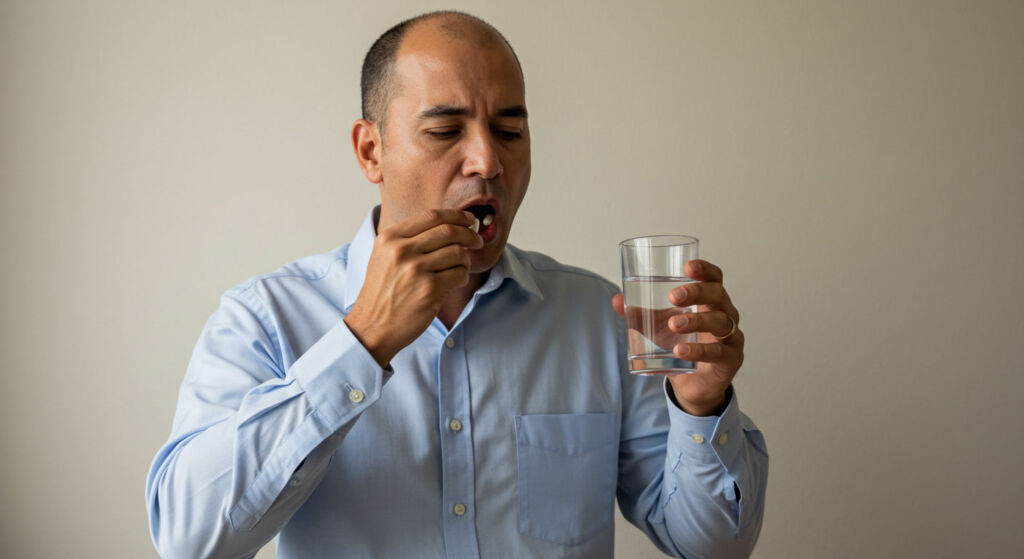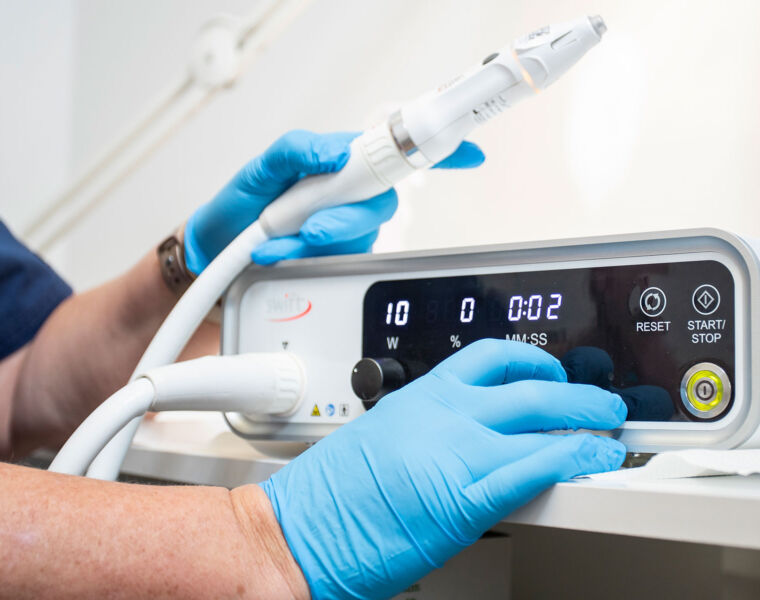
Feeling stressed? Anxious? Worried? These feelings could impact your mood, productivity, sleep, and, importantly, the health of your gut.
According to real-world research commissioned by PrecisionBiotics, the smart brains behind a range of targeted and scientifically studied probiotic supplements, a staggeringly high 99% of adults surveyed are convinced that stress and anxiety affect their digestive and gut health.[1] However, an average of 40% of adults say they feel stressed[2] every week, and 46% experience it daily, which doesn’t bode well for our guts.
Dr Nisa Aslam, GP and adviser to PrecisionBiotics® says there is a connection between the gut and the brain. “The gut is often called the ‘second brain’, because the gut and brain are interlinked by various pathways and they are constantly communicating. We are starting to realise the implications of this cycle of stress and sub-optimal gut health.
“Occasional stress and anxiety can also influence gut health by affecting the gut microbiome, which is the collection of trillions of bacteria in the gut. This stress and anxiety can impact the levels of beneficial bacteria in the gut; it’s a catch-22 for a lot of people.”
When Brits were asked how their gut issues affect their day-to-day lives, 54% said they had less energy, 34% felt they couldn’t eat what they wanted, and a quarter didn’t want to exercise.

Nearly half (44%) of adults said that they suffered from bloating, while 29% are faced with stomach cramps and pain, and 31% suffer from frustrating diarrhoea.
Research has found that stress increases gut permeability and allows bacteria to seep into the bloodstream, where it triggers an inflammatory response.[3]
Plus, Suzie Sawyer, clinical nutritionist and advisor to PrecisionBiotics®, says, “Stress and anxiety can lead to poor sleep, and then unhealthy food choices,[4] which in turn can affect gut health. Researchers have even identified a link between irregular sleep patterns, which have been connected to a host of health issues, and harmful gut bacteria[5].”
So, while stress has been shown to directly impact the gut, a whole host of other stress-related factors also play a role.

Several studies show that changes in gut bacteria can increase or reduce the risk of anxiety[6]. In fact, 95% of the body’s serotonin – the happy hormone – is produced in the gut.[7]”
Dr Nisa Aslam says it’s vital to reduce stress and, in turn, minimise the impact on your gut. Here are four ways to beat stress and fight against the gut-brain battle
#1. Get to bed: Poor sleep[8] has been associated with poor gut health. And stress can impact sleep.
Dr Nisa Aslam says, “It’s a bad cycle. Sleep is vital for so many elements of good health. So, make it a priority. Aim to go to bed and wake up at similar times, giving yourself a good seven to nine hours in bed to sleep. Remove technology from your room and wind down beforehand so your body can settle. Don’t go from doing a high-stress task to then going to bed- you just won’t relax like you need to.”
#2. Take time out: Suzie Sawyer says, “If you’re on the go 24/7, barely taking a second to relax, then you might end up stressed and anxious, with levels of your stress hormone cortisol sky high. This can then lead you to eat high-sugar, unhealthy foods that your gut won’t like.”
Take time to read a magazine with your feet up, cook a meal without distractions such as the TV or your phone, read a book before bed or go for a walk around the block, away from your emails.

#3. Eat mindfully: How many times have you wolfed down your food when you’re under pressure with a deadline or in a rush to get out of the house?
Your gut won’t like this, so instead, try mindful eating.
Dr Nisa Aslam says, “Make sure you’re sitting at a table when you eat without technology. Chew your food properly, aiming for 15 to 20 chews per mouthful and slow down your eating. Try putting your cutlery down between mouthfuls as this forces you to slow down.”
#4. Be supplement savvy: Only 22% of Brits take a probiotic supplement, but Dr Nisa Aslam says, “There is no doubt that probiotics—beneficial bacteria—have the potential to transform our health and well-being. However, it is essential to look for a probiotic that includes scientifically studied strains that demonstrate they can help with your specific symptoms, such as bloating or constipation. When you need results, look for the science in every strain.”

Dr Nisa Aslam recommends PrecisionBiotics®. “There’s a huge range in the quality and efficacy of different products. To cut through this confusion, look for a brand that is backed by science and rigorous clinical trials, such as PrecisionBiotics®. Each product delivers the live probiotics that will survive stomach acids and reach the gut in the numbers needed to get to work restoring and resetting the microbiome.”
Alflorex® Original is a one-a-day daily gut health supplement packed with 10^9 live Bifidobacterium longum 35624™ bacteria, a clinically studied strain which mothers pass to their infants. For a chewable tablet, try Alflorex® Chewable, which delivers the same bacterial strain of Bifidobacterium longum 35624.
For children aged three and up, Alflorex® Children 30 Powder Sachets deliver 1 x 10⁸ (1 billion Colony Forming Units (CFU)) of live Bifidobacterium longum 35624 in an easy-to-dissolve powder with a hint of vanilla flavour.
Alflorex® + Calcium A Daily Gut Health Supplement combines 10^9 live Bifidobacterium longum 35624™ with 120 milligrams (mg) of calcium. Dr Nisa Aslam adds: “Calcium supports normal function of digestive enzymes and a healthy digestive system.”
Suzie Sawyer adds, “Alflorex® Dual Action Daily Gut & Brain Health Supplement has around 1 billion bacteria from the Bifidobacterium longum strains 35624™ and 1714™, plus 120mg of calcium, 6mg of pantothenic acid, and 1.4mg of vitamin B6 for extra health benefits.” Vitamin B6 helps reduce fatigue and supports energy levels throughout the day.
Dr Nisa Aslam adds, “We now know the importance of the gut-brain axis and how having a healthy gut microbiome can help support our mental health and our ability to cope with the stress and pressures of modern life. Plus, a healthy gut can simply make us feel more comfortable.
Probiotics and other dietary and lifestyle interventions offer so much support to help take control of our gut health and reduce the distress that poor gut health can have on our life.”

References:
[1] A Perspectus global omnibus survey of 1031 UK adults, winter 2025 [2] https://yougov.co.uk/society/articles/50248-what-has-five-years-of-measuring-britains-mood-weekly-shown [3] https://www.ncbi.nlm.nih.gov/pmc/articles/PMC7213601/ [4] https://www.ncbi.nlm.nih.gov/pmc/articles/PMC7052994/ [5] https://www.kcl.ac.uk/news/irregular-sleep-patterns-harmful-gut-bacteria [6] https://www.ncbi.nlm.nih.gov/pmc/articles/PMC10146621/ [7] https://www.ncbi.nlm.nih.gov/pmc/articles/PMC5526216/# [8] https://www.kcl.ac.uk/news/irregular-sleep-patterns-harmful-gut-bacteria
![]()




You must be logged in to post a comment.